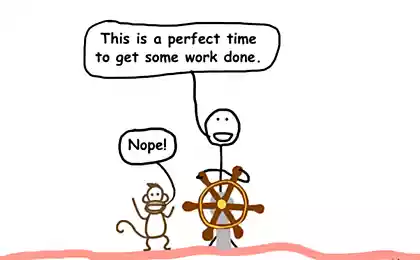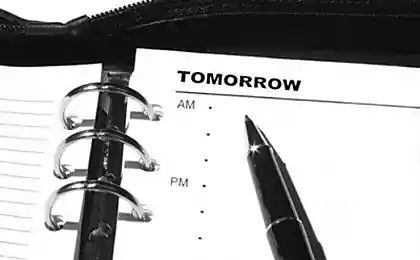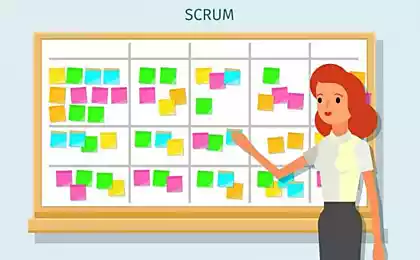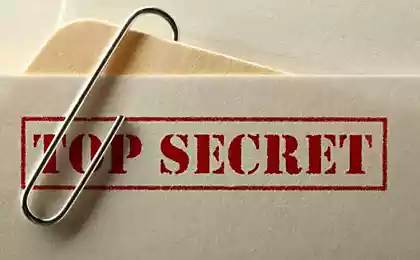817
How to do everything — Jedi technique of the empty Inbox
If you catch yourself thinking "Ahh, how to do everything? Still need to do... (and a long list of tasks)"?
The solution of the problem to "Jedi mind technique an empty Inbox" Maxim Dorofeyev. According to the author, the method is ideal for project teams and all who do not have enough 8 hours working time and 24 hours in a day.

A description of the method
First, theory is important.
Indications for use the Jedi techniques:
-the subconscious mind: do not understand how;
drive: our desire to work -a task enters the brain, there is a reaction of the brain: "something to do with it". If you are running a task, then increase the drive. If you do not perform the task it remains in the subconscious and reduces the drive;
-head to think, to remember there are other instruments;
-unfinished business living in the head and stopping to think. If the case is brought to the end, the brain forgets about it forever;
-decision — making any thing, which thinks, the brain;
-increase of effectiveness is achieved not by saving time and by saving decisions;
the brain only works effectively on one task;
-when the brain thinks he is spending "brain energy". Brain is tired to think after 40 minutes — ending energy;
-a lot of thinking badly. If you need to think of something, you need to think a little;
"things are not in place to" force the brain to think and make decisions outside of our desires and wasting energy, they should get rid of. It's about browser bookmarks, unsorted documents and files on the desktop, unpaid bills, application Windows and so on. The brain loves order.

If at the end of the day the brain is not working, Jedi technique of an empty Inbox is for you.
Brain during the working day thinking max 2-3 hours. And could retain a maximum of 30 minutes — quantum of attention. The "flow" state — when the quantum of attention is stretched to 5-6 hours.
If you make an effort and do nothing, the brain throws up interesting thoughts. You're thirsty, drink clean water, we want to relax the brain — don't stretch it. So
during rest no Facebook, news and so on.
If you think that is your most precious resource is time, then you are wrong. Most precious resource — energy. You can know how to manage time and feel tired, exhausted, physically and mentally, unable to focus and pay due attention to those who need it (From the book "Life at full power". Authors Jim Loher, Tony Schwartz).
Phase working process1.To release the brain;2.To separate "thinking" from "doing." I think only in the moment of decision, then do not think at this moment;3. To put all on the places.
Collection rules incoming. What, how and when to collect?-"incoming" or "Inbox" is all that awaits us. Incoming messages, open browser tabs, unsorted files on the desktop, nedochitannaya the book on the table, the drill which we have not returned to the neighbor (reminding you to hang a shelf), the receipt in the wallet, itchy thoughts all this Inbox;
-a task is the smallest entity of the system;
-the brain is quiet, when Inbox empty and tasks are recorded;
-any business we crushed on tasks that are performed for 30 minutes;
-well-organized task forces to think where to start, and answers the question: "What should be done?":
and, if the solution of the task need less than two minutes, do it now;
and, if you do not see tasks for which you can take, it is necessary to set the task: "Think of 15 minutes on the current task...".

The algorithm of parsing the Inbox.
Where better to store reference information? You need to answer the question: "When the information I need?". The answer to the question — a place to store information. A great store always in sight: work (regulations or wiki, check-lists), projects (project context).
Why to-do lists:
-to eliminate the need to remember;
-to allow the brain to think the exact same thought many times: the surest sign that the task list is fulfilling its function — you can't remember what you need to do tomorrow. Indeed, why remember it, when we have it all recorded;
-to give an understanding of what not to do.
It is necessary to conduct all the tasks on the one list, to correct the balance between work and personal life.
What is a good task list and how it looks? 1.The formulated problem of "What should be done?".
2. You see what the result looks like this task.
3. You are able to perform this task for 15-30 minutes to relax the brain.
4. If the date of performance, it is dictated by this necessity.
5. When we delegate someone the task and need to get from a specific person a specific result, the task is to formulate so: the name of the Person to remind you about "what to do and send to me?"
If the task list the list of pending cases exceeds a certain threshold value, it is necessary to choose tasks that interest you and meet personal objectives.
Daily and periodic review
The most important is to periodically review the objectives.
A list of tasks performs its functions provided that it is constantly fresh and updated. This condition is only possible through regular reviews: operational, daily, weekly.
Weekly review doesn't happen until the task list has no tasks "weekly task".
Every day we look at the tasks this week and move them to "today". During the day we look at the list of "today's" task and try to perform tasks that can be done right now.
If the task in the original formulation was not performed today, her chance to be executed tomorrow even lower. So at the end of the day you have to ask yourself three questions:
1.You need to finish this task today? If not, then: ...
2.Need something to do today due to the fact that this task is not completed today? (Somebody warn me something to restate or reflect this shift in any plans).
3.What steps will I begin to perform this task next time?
You need to follow the rule: "If you have not done what I planned to do today, is to replace the task of the next step towards its implementation. The original formulation of the task save".
Review system relies on the priority of the task. The priority is "today", "week", "run late." Need weekly browse folder "later" and move things from it into the folder "week".
Types of procrastinatio and ways of treating itProcrastination — the tendency to a constant delay important and urgent cases.
Types of procrastination:
-I can't recall it at the right time; is doing the nasty; — I'm scared;
— right now;
I don't know how to do it;
personally, I don't need;
the subconscious protects me from interventions For the treatment of procrastination, answer his questions in the following sequence:
1.Do I have anything to do with it?
2.Whether the execution result of you or someone else? If the result is needed that the course he (not forget and change my mind)?
3.What is the minimum acceptable result? Down with perfectionism.
4.Says natural planning? What is the first step you need to do to get the task for 30 minutes with polyvalency brain.
All together now: "the big difficult task bites off a small primary step, which can do "to a half-hour with half-off brain." Once this first step becomes clear, you feel like in the body releases the hormone "silavati" spurring us to act.
Prioritization of theJedi In the technique of the empty Inbox prioritization is simplified to two priorities: "must do" and "not to do". Thus, we move away from vpihivaniya nevpihuemoe. Instead of endlessly otkladyvat then execute Neupokoeva, a lot sooner we acknowledge the fact that it will not be done at all, and begin to adjust their actions accordingly.
If to be alone with a complex task, removing the more simple tasks, quick thinking pulls slow and elicits it, where do you need to start this task. But pull slow thinking fast does not like, and so if there are other cases, it is best to finish with them and begin challenging the task, when fewer distractions, for example, the morning of the next day.
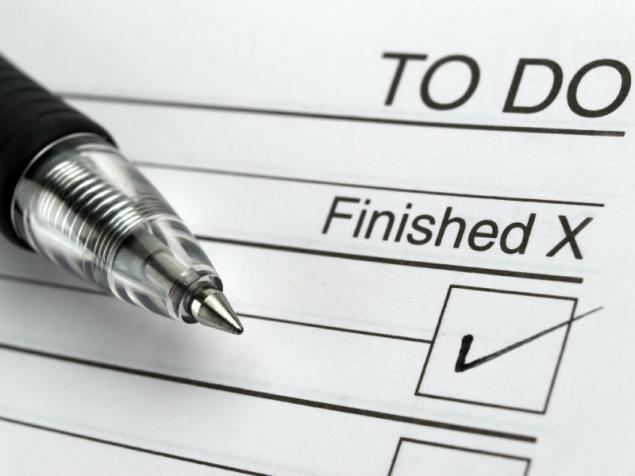
Types of procrastinatio and ways of treating itProcrastination — the tendency to a constant delay important and urgent cases.
Types of procrastination:
-I can't recall it at the right time; is doing the nasty; — I'm scared;
— right now;
I don't know how to do it;
personally, I don't need;
the subconscious protects me from interventions For the treatment of procrastination, answer his questions in the following sequence:
1.Do I have anything to do with it?
2.Whether the execution result of you or someone else? If the result is needed that the course he (not forget and change my mind)?
3.What is the minimum acceptable result? Down with perfectionism.
4.Says natural planning? What is the first step you need to do to get the task for 30 minutes with polyvalency brain.
All together now: "the big difficult task bites off a small primary step, which can do "to a half-hour with half-off brain." Once this first step becomes clear, you feel like in the body releases the hormone "silavati" spurring us to act.published
Source: vc.ru/n/jedi-inbox
The solution of the problem to "Jedi mind technique an empty Inbox" Maxim Dorofeyev. According to the author, the method is ideal for project teams and all who do not have enough 8 hours working time and 24 hours in a day.

A description of the method
First, theory is important.
Indications for use the Jedi techniques:
- Very few people can perform a simple exercise. For example, saying, "I will answer you on Wednesday" and answer Wednesday. If you are going to implement something in a company to improve processes, to be able to bring the case to the end is necessary and important. Without this in any way.
- 90% of all tasks 90% done and remain in this state forever. The difference between "make" and "make".
- often we manage to maximize their costs so that the output to nothing.
- You are at work, and in your head is a tough thought process, but there comes a letter, SMS and necessarily there is a desire to respond. The result is a lot of unfinished business at the end of the day: forgot, got distracted, and so on.
- You decide work task and suddenly a thought, "to Buy milk?". The brain immediately looks for possible options, what to do to buy milk. The result is a "victim" attitude.
- During the meeting, an important question arises, which is difficult to answer. Officer requested to formulate the problem in a letter and send email. A letter arrives, the employee opens and realizes that in two words can not explain. The result is a new meeting or meeting.
- You walk with your family and think about work. Come to work and think about the appointed meeting, which will be in two hours. Why take the job if before the game was two hours, still did not succeed. The result — at the meeting, you think of a walk with the family.
- You go to sleep at night and you think of an important idea. You are trying to sleep, but the thought of you never leaves. The result — tired, not enough sleep people early in the morning.
-the subconscious mind: do not understand how;
drive: our desire to work -a task enters the brain, there is a reaction of the brain: "something to do with it". If you are running a task, then increase the drive. If you do not perform the task it remains in the subconscious and reduces the drive;
-head to think, to remember there are other instruments;
-unfinished business living in the head and stopping to think. If the case is brought to the end, the brain forgets about it forever;
-decision — making any thing, which thinks, the brain;
-increase of effectiveness is achieved not by saving time and by saving decisions;
the brain only works effectively on one task;
-when the brain thinks he is spending "brain energy". Brain is tired to think after 40 minutes — ending energy;
-a lot of thinking badly. If you need to think of something, you need to think a little;
"things are not in place to" force the brain to think and make decisions outside of our desires and wasting energy, they should get rid of. It's about browser bookmarks, unsorted documents and files on the desktop, unpaid bills, application Windows and so on. The brain loves order.

If at the end of the day the brain is not working, Jedi technique of an empty Inbox is for you.
Brain during the working day thinking max 2-3 hours. And could retain a maximum of 30 minutes — quantum of attention. The "flow" state — when the quantum of attention is stretched to 5-6 hours.
If you make an effort and do nothing, the brain throws up interesting thoughts. You're thirsty, drink clean water, we want to relax the brain — don't stretch it. So
during rest no Facebook, news and so on.
If you think that is your most precious resource is time, then you are wrong. Most precious resource — energy. You can know how to manage time and feel tired, exhausted, physically and mentally, unable to focus and pay due attention to those who need it (From the book "Life at full power". Authors Jim Loher, Tony Schwartz).
Phase working process1.To release the brain;2.To separate "thinking" from "doing." I think only in the moment of decision, then do not think at this moment;3. To put all on the places.
Collection rules incoming. What, how and when to collect?-"incoming" or "Inbox" is all that awaits us. Incoming messages, open browser tabs, unsorted files on the desktop, nedochitannaya the book on the table, the drill which we have not returned to the neighbor (reminding you to hang a shelf), the receipt in the wallet, itchy thoughts all this Inbox;
-a task is the smallest entity of the system;
-the brain is quiet, when Inbox empty and tasks are recorded;
-any business we crushed on tasks that are performed for 30 minutes;
-well-organized task forces to think where to start, and answers the question: "What should be done?":
and, if the solution of the task need less than two minutes, do it now;
and, if you do not see tasks for which you can take, it is necessary to set the task: "Think of 15 minutes on the current task...".

The algorithm of parsing the Inbox.
Where better to store reference information? You need to answer the question: "When the information I need?". The answer to the question — a place to store information. A great store always in sight: work (regulations or wiki, check-lists), projects (project context).
Why to-do lists:
-to eliminate the need to remember;
-to allow the brain to think the exact same thought many times: the surest sign that the task list is fulfilling its function — you can't remember what you need to do tomorrow. Indeed, why remember it, when we have it all recorded;
-to give an understanding of what not to do.
It is necessary to conduct all the tasks on the one list, to correct the balance between work and personal life.
What is a good task list and how it looks? 1.The formulated problem of "What should be done?".
2. You see what the result looks like this task.
3. You are able to perform this task for 15-30 minutes to relax the brain.
4. If the date of performance, it is dictated by this necessity.
5. When we delegate someone the task and need to get from a specific person a specific result, the task is to formulate so: the name of the Person to remind you about "what to do and send to me?"
If the task list the list of pending cases exceeds a certain threshold value, it is necessary to choose tasks that interest you and meet personal objectives.
Daily and periodic review
The most important is to periodically review the objectives.
A list of tasks performs its functions provided that it is constantly fresh and updated. This condition is only possible through regular reviews: operational, daily, weekly.
Weekly review doesn't happen until the task list has no tasks "weekly task".
Every day we look at the tasks this week and move them to "today". During the day we look at the list of "today's" task and try to perform tasks that can be done right now.
If the task in the original formulation was not performed today, her chance to be executed tomorrow even lower. So at the end of the day you have to ask yourself three questions:
1.You need to finish this task today? If not, then: ...
2.Need something to do today due to the fact that this task is not completed today? (Somebody warn me something to restate or reflect this shift in any plans).
3.What steps will I begin to perform this task next time?
You need to follow the rule: "If you have not done what I planned to do today, is to replace the task of the next step towards its implementation. The original formulation of the task save".
Review system relies on the priority of the task. The priority is "today", "week", "run late." Need weekly browse folder "later" and move things from it into the folder "week".
Types of procrastinatio and ways of treating itProcrastination — the tendency to a constant delay important and urgent cases.
Types of procrastination:
-I can't recall it at the right time; is doing the nasty; — I'm scared;
— right now;
I don't know how to do it;
personally, I don't need;
the subconscious protects me from interventions For the treatment of procrastination, answer his questions in the following sequence:
1.Do I have anything to do with it?
2.Whether the execution result of you or someone else? If the result is needed that the course he (not forget and change my mind)?
3.What is the minimum acceptable result? Down with perfectionism.
4.Says natural planning? What is the first step you need to do to get the task for 30 minutes with polyvalency brain.
All together now: "the big difficult task bites off a small primary step, which can do "to a half-hour with half-off brain." Once this first step becomes clear, you feel like in the body releases the hormone "silavati" spurring us to act.
Prioritization of theJedi In the technique of the empty Inbox prioritization is simplified to two priorities: "must do" and "not to do". Thus, we move away from vpihivaniya nevpihuemoe. Instead of endlessly otkladyvat then execute Neupokoeva, a lot sooner we acknowledge the fact that it will not be done at all, and begin to adjust their actions accordingly.
If to be alone with a complex task, removing the more simple tasks, quick thinking pulls slow and elicits it, where do you need to start this task. But pull slow thinking fast does not like, and so if there are other cases, it is best to finish with them and begin challenging the task, when fewer distractions, for example, the morning of the next day.

Types of procrastinatio and ways of treating itProcrastination — the tendency to a constant delay important and urgent cases.
Types of procrastination:
-I can't recall it at the right time; is doing the nasty; — I'm scared;
— right now;
I don't know how to do it;
personally, I don't need;
the subconscious protects me from interventions For the treatment of procrastination, answer his questions in the following sequence:
1.Do I have anything to do with it?
2.Whether the execution result of you or someone else? If the result is needed that the course he (not forget and change my mind)?
3.What is the minimum acceptable result? Down with perfectionism.
4.Says natural planning? What is the first step you need to do to get the task for 30 minutes with polyvalency brain.
All together now: "the big difficult task bites off a small primary step, which can do "to a half-hour with half-off brain." Once this first step becomes clear, you feel like in the body releases the hormone "silavati" spurring us to act.published
Source: vc.ru/n/jedi-inbox





